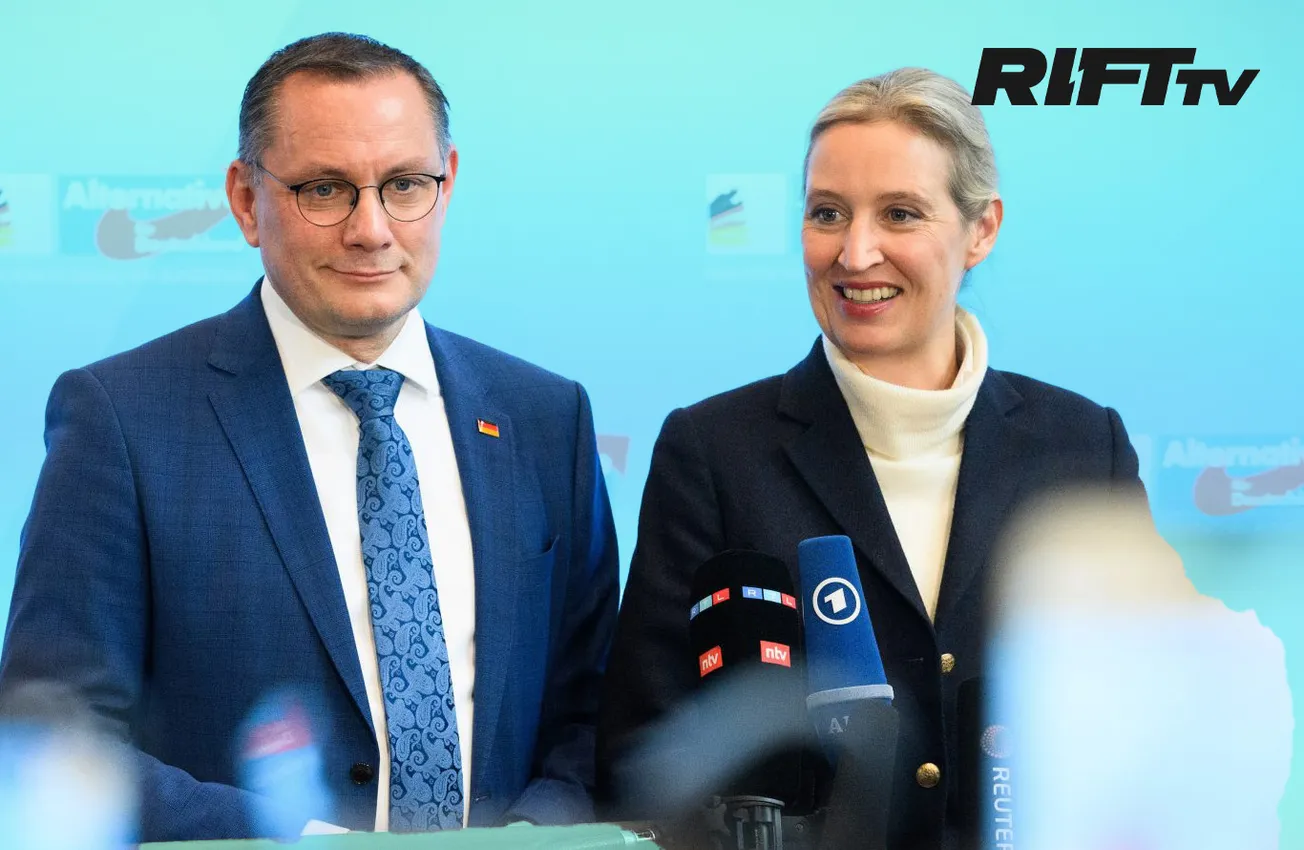BERLIN — The political tectonics of Germany just shifted dramatically. An Ipsos poll from April 9, 2025 has the far-right Alternative fur Deutschland (AfD) up 25% nationally, creeping ahead of the CDU/CSU bloc’s 24%. And in a major survey not seen before, the party once derided as a fringe tantrum is out in front, a sign of tectonic change in a country that has long held on to its centrist, guilt-stained postwar identity.
This isn’t a mere poll blip — this is a middle finger to the leftist policies that have rewritten Berlin’s playbook and voters are through pretending to get with the program.
The AfD’s rise isn’t subtle. Established in 2013 as a euroskeptic critique targeting E.U. bailouts, it has transformed into a full-throated nationalist roar — anti-immigration, anti-establishment and unapologetic.
The AfD Represents Growing Political Will in Germany
That 25% figure doesn’t merely eclipse the CDU/CSU; it dwarfs the governing “traffic light” coalition—Chancellor Olaf Scholz’s Social Democrats (SPD), the Greens, and the Free Democrats (FDP)—whose joint support plummeted after their win in 2021.
The Ipsos figures shout dissatisfaction: The Germans have been sick of open borders and eco-zealotry, and of being ruled by a wobbly government that’s floundered through many crises, from Ukraine to energy prices.
Look at the backdrop. The SPD, Greens, and FDP took power promising progress—climate action, social justice, the works. Instead, they’ve delivered a mess. Immigration’s a flashpoint: after Angela Merkel’s 2015 “Wir schaffen das” welcomed over a million refugees, the fallout’s piled up—crime spikes, housing crunches, and a string of attacks tied to asylum seekers, like the 2024 Solingen stabbing that killed three.
The AfD’s “remigration” pitch—deporting foreigners en masse—sounds extreme to critics, but it’s resonating with a chunk of voters who feel ignored. Add in sky-high energy bills from the Greens’ renewable push and the SPD’s Ukraine aid that’s drained wallets without clear wins, and the leftist vision’s starting to look like a bad bet.
Eastern Germany’s the AfD’s stronghold, where support tops 30%. That’s no surprise — decades after reunification, the east still falls behind, economically and culturally, and distrust in Berlin’s elite runs deep.
The party is crushing it there — it won over a third of the vote in the 2024 state elections in Thuringia and Saxony. But this 25% national leap? That’s new. It’s bleeding into the west, as well, where younger, cash-strapped voters are grabbing onto the AfD’s blunt talk.
The CDU/CSU, Germany’s postwar rock, is reeling. At 24%, they’re still players, but losing ground to a party they’ve shunned as untouchable shows how badly they’ve misread the room.
Friedrich Merz, their leader, tried toughening up on migration—backing an AfD-tinged bill in January 2025 that flopped—but it’s not enough. The center-right’s stuck: too timid to outflank the AfD, too tainted by Merkel’s legacy to dodge the blame.
Meanwhile, the SPD’s at 15%, the Greens at 12%, per recent trends. The coalition’s collapse late last year set the stage for this snap-election fever, and the AfD’s riding the chaos.
This 25 percent is a seismic jolt — Germany’s political will snapping toward something more raw, assertive. The AfD’s still stuck behind the “firewall”—none of the major parties will form a coalition with them, pointing to their far-right stench. But that dam’s cracking. And if they hold or gain ground during the 2029 federal vote, the math gets brutal for everyone else. Leftist policies — open borders, green dogma, globalist deference — is moving the country to the right. Germany is not just shifting its shouting.









